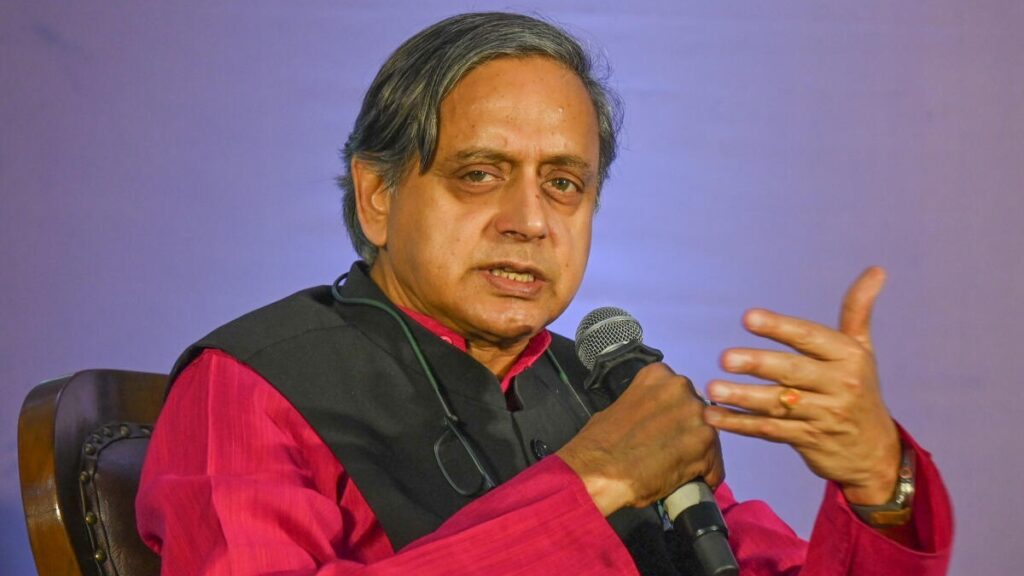Looking back at history, June 25 holds much significance for India. It was on that day in 1983 that “minnows” India defeated the favourites West Indies at Lord’s and won the Cricket World Cup for the first time. Cricket in India has not been the same ever since. It was also on that day in 1975 that “Emergency” was declared in India by the then Prime Minister Indira Gandhi. Politics in India has changed in many ways ever since.

June 25, which recently passed, gained extra significance. It was the 50th anniversary of the declaration of Emergency. The ruling dispensation led by the Bharatiya Janata Party had additional motivation to mark the event louder, as it gave an opportunity to take pot shots at Congress, which has been crying hoarse that Samvidhan Khatre mein Hain (Constitution is in danger) under the BJP rule. So, since last year, the BJP has been calling June 25 the Samvidhaan Hatya Diwas as its own way of getting back at the Congress.
This year, though, what took everyone’s attention was the article written by Congress MP Shashi Tharoor for Project Syndicate. The article that appeared this week on July 8, titled “Heeding the Lessons of India’s Emergency”, panned Indira Gandhi for invoking the Emergency and criticised many of her actions that followed, including silencing the press, muzzling the entire opposition, and violating human rights. If this piece were written by a journalist or a leader from the ruling party, it would not have gained so much traction. However, since the piece was written by a Congress party leader, in which he criticised his own party’s past actions, it became a subject of all-around scrutiny and commentary.
This is not the first time Tharoor has been mired in such a controversy. In the recent past, when he praised the Government’s actions on “Operation Sindoor,” it was seen as inappropriate behavior. Not just Tharoor, but whenever any opposition leader spoke positively about the government’s actions, it was always considered unusual.
In India, when you belong to a particular party, you are not supposed to express any views that are not in line with the party line in public. This means that, regardless of your personal opinion, if you are a member of the opposition, you are expected to criticise the ruling party and endorse the stand of your party. Always. In fact, as an elected MP or MLA, you cannot even vote against your party’s position on bills and laws that are introduced. The Anti-Defection Law strictly prohibits elected members from voting according to their conscience.
This, in my opinion, is a fallacy of our democracy. It stifles free speech and prevents diversity of opinion on key public policy issues. When every member is just expected to follow the party line, where is the opportunity to debate policy matters? Some might argue that such debate could happen within party forums, and only in public would members need to conform. But in India, parties are usually led by strong leaders and their coteries. Even dissent within parties is not encouraged and is viewed as a challenge to leadership. Usually, those who dissent even privately end up in obscurity within the party, and it is only a matter of time before the leader’s political career is over. Even if alternative opinions are allowed within parties, the voting public often remains unaware of their leader’s stance on crucial issues.
If you look at some of the robust democracies in the world, the situation is different. In America, we often see Democrats supporting the Republicans’ positions and vice versa, publicly even voting against their own party’s stand. This enables elected representatives to take a thoughtful position based on their own judgment of the issue. It also facilitates building a consensus across divides on key national issues without the fear of expulsion from their parties.
In India, we follow the Westminster model, where there is a party whip and party members are subjected to it. Only very rarely do parties not issue a whip and let members vote as per their conscience. When this happens, it is like an exceptional event. I have seen this only in the case of Presidential elections, where parties sometimes let members vote as per their conscience.
Outside of the legislature, when MPs or MLAs make comments that do not align with their party’s stand, hell breaks out, as we have seen recently with Tharoor. Frequently, he adopts a nationalistic perspective and shares his opinions on foreign policy issues, which are immediately played up by the media as an embarrassment to the Congress party he belongs to. However, many other leaders within his party likely share similar views but choose not to express them openly.
As the world’s largest democracy, if India could adopt one aspect from the world’s oldest modern democracy—America—it would be to allow members of political parties to openly express their opinions on key issues and vote according to their beliefs and wisdom without having to toe their party line. This would lead to better decision-making at the political level and, more importantly, enable diverse individuals to contribute to nation-building. It is time we end the “tyranny of the party line” and allow the biggest democracy to be the best democracy, like the Kapil’s Devils showed in Cricket.
